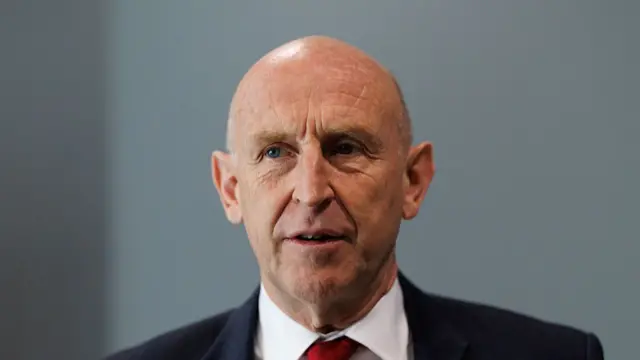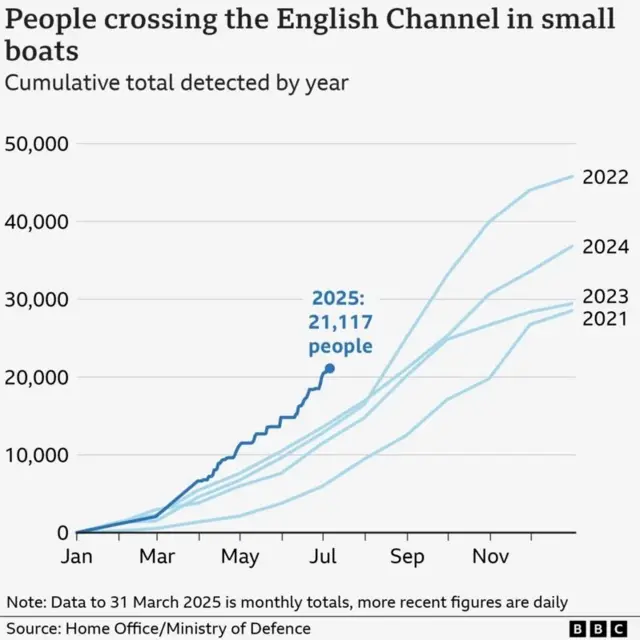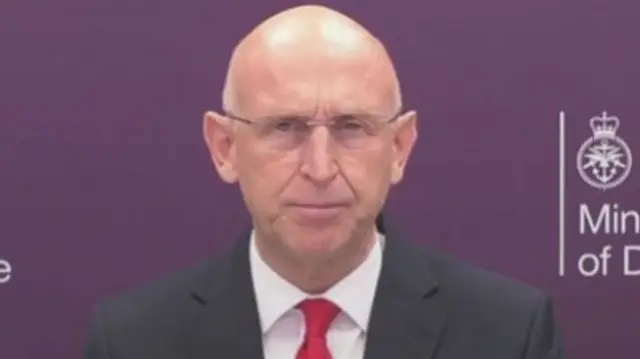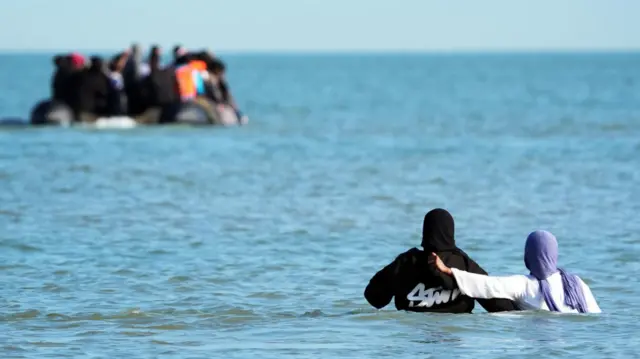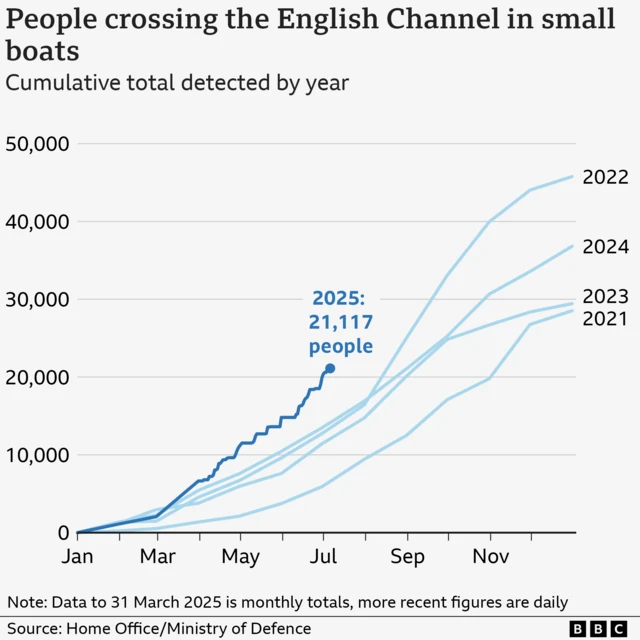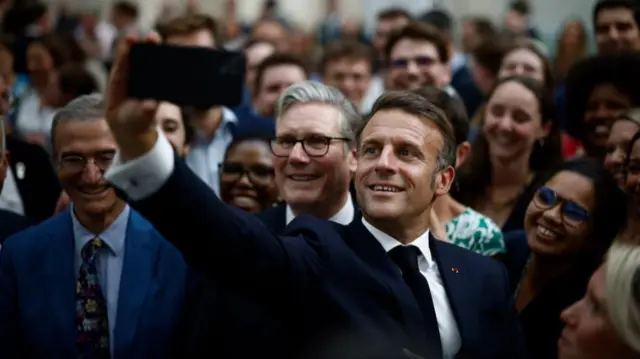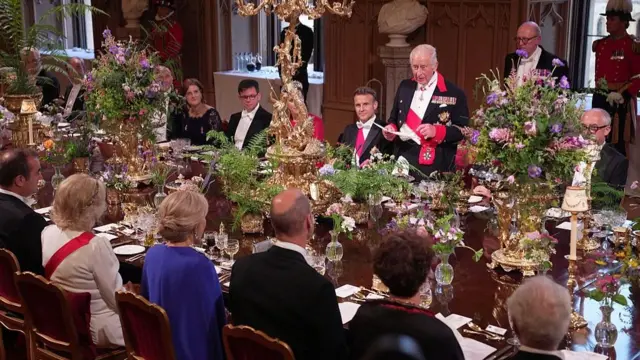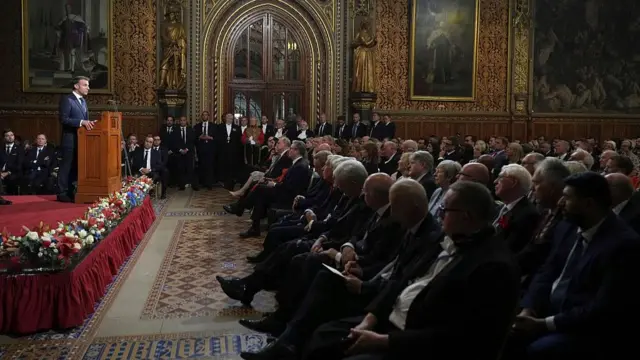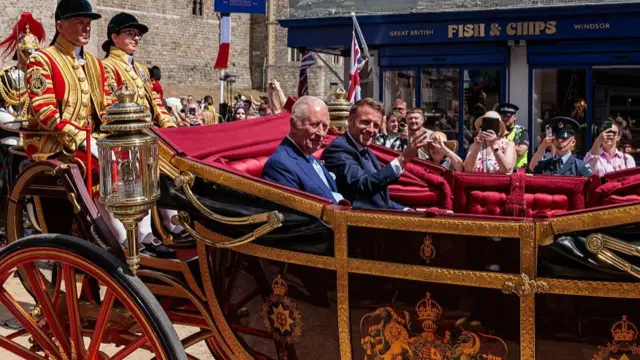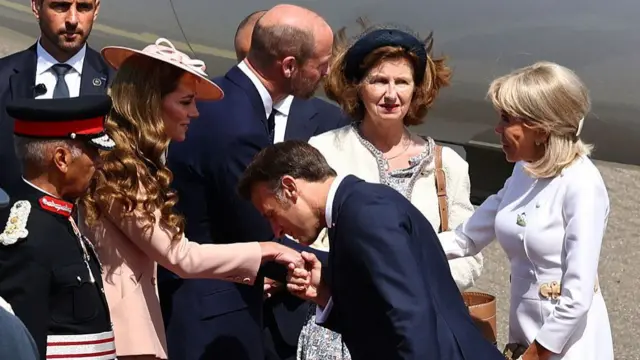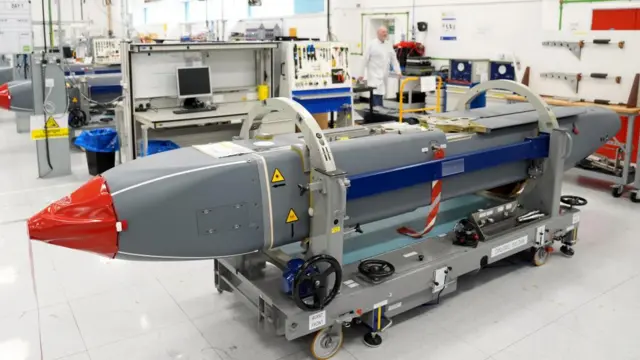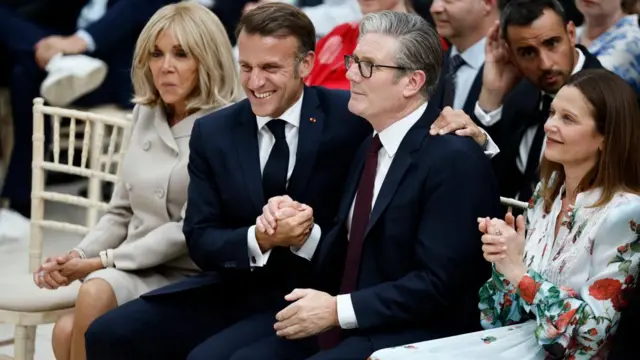'One in, one out' policy might be acceptable to French electorate - National Assembly memberpublished at 09:31 BST 10 July
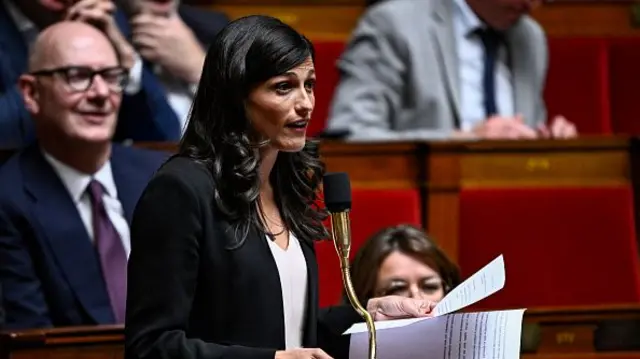 Image source, AFP via Getty Images
Image source, AFP via Getty ImagesÉléonore Caroit , a National Assembly member for President Macron's Renaissance Party, tells the BBC that migrant crossings are a "common challenge" facing the UK and France.
"The first reason we need to do this is that people are dying," she tells BBC Radio 4's Today programme.
"Co-operation is needed, especially after Brexit. I welcome any deal... but I am not sure that will totally stop the situation."
Caroit says the "one in, one out" deal being suggested this morning "might be acceptable to the French electorate".
"If there is a perception that this will ultimately limit the people that come to our country just to go to yours - then that will be acceptable," she says. "But I am afraid that will not be enough.
"People will try over and over again if so long as they see Britain as an attractive country where they could ultimately end their journey."

